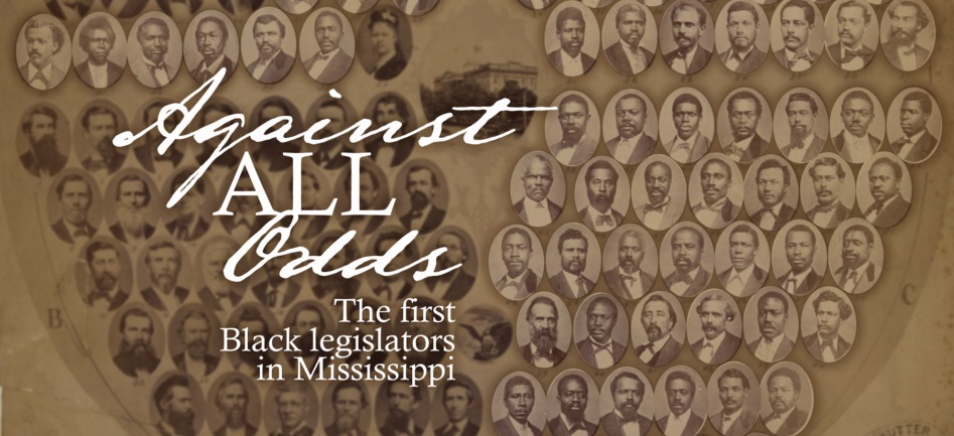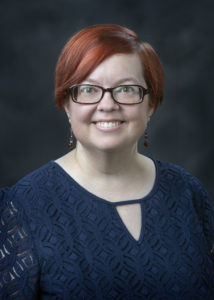
- This event has passed.
The Recovery of Nineteenth-Century Black Histories
July 27, 2021 @ 12:30 pm - 1:45 pm EDT

This session’s participants describe their work to recover Black histories, stories, and lives: from Black Mississippi legislators, to the family and circles of Annie Wood Webb (1831-1879), and early Black settlers in Ohio.
The Featured Image is from “Against All odds: The First Black Legislators in Mississippi.”
Moderator: Frances Jones-Sneed, Ph.D., Professor Emeritus of History, Massachusetts College of Liberal Arts (MCLA)
DeeDee Baldwin, Mississippi State University Libraries: “Against All Odds: The First Black Legislators in Mississippi”
Through short biographies, quoted excerpts from primary and secondary sources, and almost 900 newspaper clippings and other documents, the website “Against All Odds” tells the story of the first African American men – over 150 in all – to serve as Mississippi’s state and national legislators. The site is a digital humanities project created by history librarian DeeDee Baldwin to fill an information gap confronted by people who might want to learn more about these men. Baldwin will discuss the process of creating the site and encourage librarians and archivists to launch other projects like this as a form of reparations activism (see Anna Robinson-Sweet’s 2018 article in The American Archivist) to preserve the stories of people whose lives and achievements were overlooked or intentionally buried by the institutions that controlled the historical record.

DeeDee Baldwin (@DeeDeeBaldwinMS) is the History Research Librarian and liaison to the Shackouls Honors College at Mississippi State University Libraries. She previously worked as a staff member in the library’s Manuscripts department from 2007-2017. She is a past president of the Society of Mississippi Archivists.
Mary Maillard, Independent Scholar: “‘What new bright world is this?’: The Coming of Age of Annie Wood”
Working as an independent scholar and documentary editor since 2010, my research led me to a private collection of rare nineteenth-century letters, photographs, autograph albums, property deeds, school certificates, and bible records belonging to the elite Philadelphia African-American family of Annie Wood Webb (1831-1879). The collection, now housed at the Library Company of Philadelphia, has not been processed and is not yet accessible to scholars.
The Annie Wood Webb Papers have considerable literary and historical importance. Any antebellum handwritten letter penned by an African American is enormously valuable and quite rare. Ranging from the 1830s to the early 1900s, the collection reveals Annie Wood Webb’s family connections to prominent early black literary figures: diarist Charlotte Forten (niece); novelist, Frank J. Webb (brother-in-law); antislavery poet Sarah Forten Purvis (sister-in-law); abolitionist Robert Purvis (brother-in-law); orator Charles Lenox Remond (stepfather); and fugitive-slave narrative author Harriet Jacobs’ daughter, Louisa Jacobs (cousin).
The personal lives of northern black women during the antebellum era are not well documented. In fact, “private correspondence between African American women of the antebellum or postbellum era is so rare that its absence seems deliberate.” Using a selection from the papers as a structural lens, I investigate Annie Wood’s girlhood and coming of age. Wood’s eight love letters written to her future husband in 1854, as well as two suitors’ letters written in 1849 and 1851, are the earliest known African American courtship correspondence and have much to offer scholars interested in the ways that race, class, and gender intersect in the romantic lives of elite young women in the Black Atlantic.
Annie Wood (Webb)’s personal correspondence illustrates how one former slave negotiated the precarious paths of education, courtship, marriage, motherhood, and inheritance during a time when women, especially women of colour, enjoyed few rights.

Mary Maillard is a documentary editor from Vancouver, British Columbia. Her edition Whispers of Cruel Wrongs: The Correspondence of Louisa Jacobs and Her Circle, 1879-1911 (U Wisconsin Press, 2017) received Honorable Mention for the Society for the Study of American Women Writers Book Award in 2018. She edited the Skinner Family Papers and is currently editing the Annie Wood Webb Papers.
Jewon Woo, Lorain County Community College, Ohio: “From ‘Legit’ Document to Digital Auxiliaries”
My presentation, “From ‘Legit’ Document to Digital Auxiliaries,” demonstrates how digital recovery of and its open accessibility to archive can shift a center of historical discourse from white-individuals to Black-communities, by investigating the case of early Black settlers in Ohio. The topic of early Black settlers itself has rarely been studied not only because we do not have enough surviving documents about their history but also because the perception of “legitimate” documents trivializes Black settlers’ own records, which result in archival absence. Those with the authority of documentation about early Black Ohioans are white-enslaver-individuals who were so “benevolent” that they could manumit and help their human properties settle in the nearby free state, Ohio. Accordingly, from Charles Thomas Hickok’s The Negro in Ohio 1802-1870 to recent studies on early Black Ohioans, they tend to focus on these white-enslavers’ narratives that reinforce the tropes of the white savior and heroic individual. In these archival projects, early Black settlers are portrayed passive and dependent on white enslavers’ continuous support. However, when we center marginalized documents, like short-lived pamphlets and newspapers published by Blacks, and visualize them through digital tools, the forgotten presence of early Black communities appears communal, independent, and self-sustainable. For example, the Palladium of Liberty, the first Black newspaper in Ohio from 1843 to 1844, lists its agents who recruited subscribers and delivered newspapers in every month. On an interactive digital map, it turns out that early Black settlers collaborated to (re)build their self-sustainable and democratic communities beyond their immediate vicinities throughout Ohio despite the notorious Black law and other institutional attempts to dismantle their settlements. Although their stories have faded into oblivion as white-framed documentations fail to record them, they practiced Black community building and demonstrated their democratic citizenry in 19th-century Ohio. With this example, I argue that decolonizing historical documents through digital tools can redirect us to less-discussed yet significant parts of history from the perspective of marginalized groups.

Jewon Woo (@ClevelandKimchi) teaches African American, American, and Women’s Literatures at Lorain County Community College, Ohio. Her essays appeared in American Periodicals, American Studies, Research on Diversity in Youth Literature, and The Colored Conventions Movement. She currently works on a digital project about the Black press in 19th-century Ohio with the support of ACLS/Mellon and NEH grants.
This event will be recorded and uploaded to the ADE Youtube Channel.